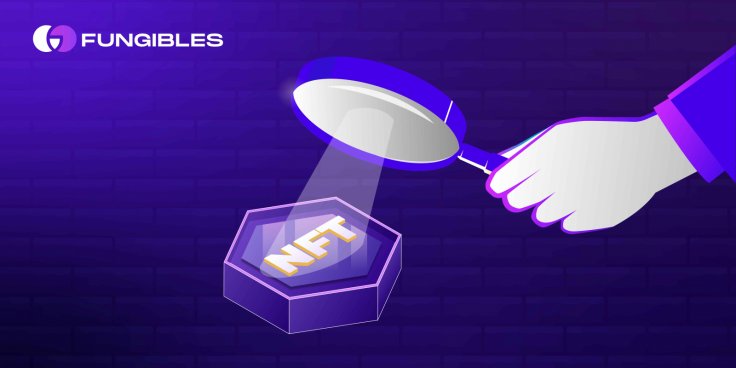
NFTs, non-fungible tokens, first became public knowledge in 2017.
In 2017, CryptoKitties was the first video game that featured NFTs, built using the ERC-721 token standard on Ethereum. The now world famous CryptoPunks, have seen sales over $1 million. They came into the digital world in June 2017, originally given to Ethereum wallet holders who claimed them - for free.
In 2021, NFTs exploded into the mainstream in March thanks to artists minting JPEGs on NFTs - unique tokens on a transparent, permanent, and decentralized internet ledger known as the blockchain. CryptoPunks may have been record-breaking, but artists like Beeple brought NFTs onto every major media network in the world. The record $69 million Beeple NFT sale was mind-boggling to the world at the time.
Tens of thousands of visual artists have been onboarded onto NFT marketplaces like OpenSea, Atomic Wax, and Solana Art. These support the Ethereum, ATOM, and Solana blockchains respectively. And there are dozens of more blockchains that support NFTs now. NFTs grew out of blockchain technology and are now tightly linked with and complement the world of cryptocurrencies.
And while some argue there is an art price bubble, in fact, there are many more NFT use cases popping up. New startups, projects, and investments from legacy institutions show that NFTs are knocking on the door of multiple industries. At this time, mass adoption clearly appears to be in the near future for NFTs across the planet. After all, there are so many large corporations and celebrities talking about NFTs and jumping into the game. But let's go back to basics and see where it all started. NFTs as a technology are the next innovation in property rights.
What do NFTs have to do with Property Rights?
Yes, individual property rights? What pain point does an NFT solve for an individual creator - whether visual artist, writer, musician, etc?
An NFT is a digital signature - a token - that is stored on a blockchain. It is a permanent, transparent and secure record. Due to the decentralized nature of blockchains, the record is more secure than it would be in a database on a single computer or a paper file in a single warehouse that could be hacked or stolen.
This also dives into the next issue for creators - royalties. This has come up many times with creators before. With many creative industries controlled by powerful centralized institutions, this has been oppressive to many creators. A famous example is Prince, who fought in a legal battle for years for the right to even use his own name as an artist.
Royalties from created works are an important passive income stream. This is not just for the rich or famous people, this is important for the everyday person. Can this be implemented with NFTs?
Yes, and there is a new NFT ecosystem that is doing just that. GoFungibles is an NFT ecosystem where royalties are built into its native economy.
GoFungibles
GoFungibles is an inclusive ecosystem with an NFT marketplace for creators, as well as a cryptocurrency token $GFTS.
They implement royalties into their ecosystem. Here is how it works. When a creator sells an NFT, they of course get paid for their works. But what if their creation gets sold to another investor later. What if they become very famous later on? There are many traders that get into NFTs to buy and then sell NFTs at a profit.
So what if an artist explodes - they sell a piece for $500 that then is selling for $200,000 next month? This normally would not be a very happy moment for this artist. However, since NFTs also record the creator of the NFT, royalties are automatically paid by smart contract, every time an NFT is resold.
There is no limit to the amount of times an NFT is resold. It is not uncommon for an NFT to change hands multiple times. And remember, we are still very early in the NFT age. This can continue for a lifetime. The potential passive income stream can be great and lifelong for a creator.
GoFungibles has even more features, including the ability to stake NFTs to obtain liquidity. It even has Lazy minting, allowing the creator not to pay any gas fees upfront. The ecosystem seeks to bring NFTs and decentralized finance together and royalties is one key element of this.
NFTs are now popular all over the world and the technology is here to stay. Can GoFungibles lead the way for a new era in creator's property rights with royalties in its NFT marketplace?
Only time will tell, but we can be certain that GoFungibles is determined to make their mark in the sector.








